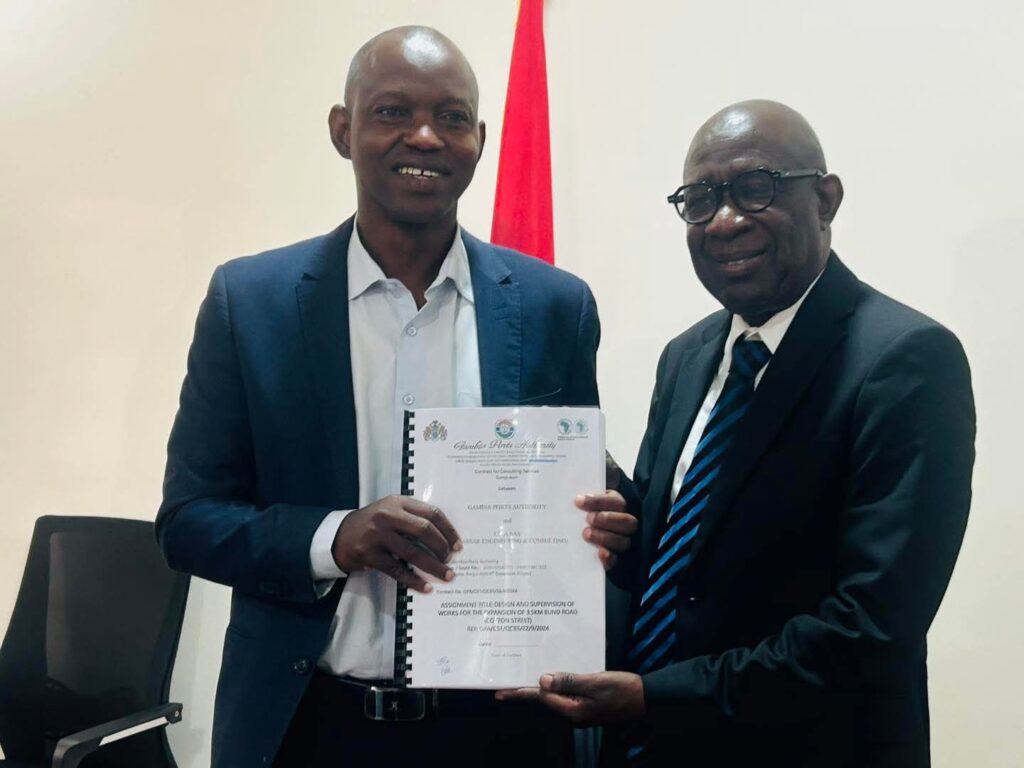Former United Democratic Party (UDP) member and current Mayor of Kanifing Municipal Council, Talib Ahmed Bensouda, has unveiled the Unite Movement for Change, a new political initiative that he says seeks to unite Gambians behind the values of integrity, transformation, and inclusion ahead of the 2026 election cycle.
Speaking at the movement’s inaugural meetings held over the weekend, Bensouda described the formation of the Unite Movement for Change as the beginning of what he called “the fourth revolution” in the country’s political history. He said the movement was not conceived as a political party but as a “bottom-up” platform that places ordinary Gambians at the centre of national decision-making.
“Political parties do not win elections because political parties do not represent people’s aspirations,” Bensouda said. “A movement is not a top-down approach, it is a bottom-up approach. You tell us the problems, you choose your leaders, you drive the change.”
Bensouda traced The Gambia’s political evolution from independence to the 2016 coalition, describing each as a movement that redefined national direction. He said the Unite Movement for Change aims to carry that legacy forward by addressing persistent social and economic challenges.
Citing global and regional data, Bensouda noted that The Gambia ranks among the world’s 20 poorest countries and among the bottom ten in Africa. He highlighted indicators such as the Human Development Index, youth migration through the backway, and low access to quality education and healthcare as signs that “something is very wrong with our country.”
The movement, he explained, is guided by the acronym UNITE, meaning United for Integrity, Transformation, and Equality. He said these three principles are missing in Gambian politics and governance, and must form the foundation of any credible national renewal.
“If you do not have integrity in a political party, you will not have integrity in government,” he said. “We will not talk about people or personalities. We will talk about problems and ideas.”
Bensouda urged members to respect leaders and supporters of their former parties, emphasising that the movement was open to all Gambians regardless of ethnicity, religion, or political background. “We will only judge you by the value you add and the character you show us,” he said.
The mayor revealed that within 48 hours of launching, the movement had registered over 5,000 members, calling it the fastest-growing civic initiative in Gambian history. He projected that by the end of the year, more than 100,000 Gambians would have joined.
He outlined a timeline for the movement’s transition into a political party, noting that by the end of October, consultations would begin on drafting a constitution, establishing committees, and creating an organisational framework. By December 2025, he said, the group expects to hold a national conference to formally register as a political party.
Bensouda also proposed structural reforms, including separating the roles of party leader and secretary general to prevent the concentration of power. “A party must have checks and balances,” he said. “That is how we create democracy, accountability, and transparency.”
Concluding his speech, Bensouda called on supporters to see the initiative not as his personal project, but as a shared national platform.
“Don’t say this is Talib Bensouda’s movement,” he told attendees. “Tell them it is their movement, because every member is equal. What we build, we want to last for generations.”
He compared the vision for the Unite Movement for Change to long-standing political institutions such as the Conservative Party in the United Kingdom and the Democratic Party in the United States, saying The Gambia too could build a legacy based on ideas, principles, and national pride.
Former United Democratic Party (UDP) member and current Mayor of Kanifing Municipal Council, Talib Ahmed Bensouda, has unveiled the Unite Movement for Change, a new political initiative that he says seeks to unite Gambians behind the values of integrity, transformation, and inclusion ahead of the 2026 election cycle. Speaking at the movement’s inaugural meetings held The Fatu Network

